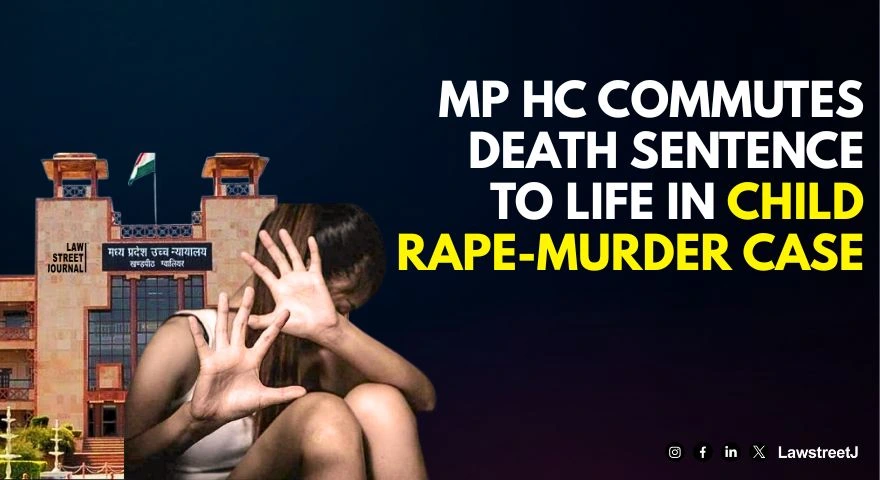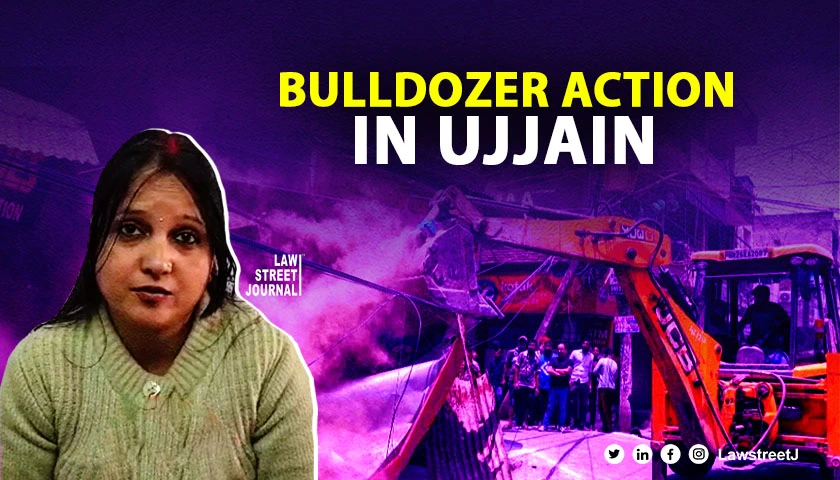Madhya Pradesh: The Madhya Pradesh High Court has delivered a significant judgment commuting the death penalty awarded to a man convicted of the rape and murder of a 12-year-old girl, emphasizing considerations of age and the potential for rehabilitation while upholding the conviction.
A division bench comprising Justice Vivek Agarwal and Justice Devnarayan Mishra made crucial observations on the appropriateness of capital punishment and its legal implications in cases involving young offenders.
The court was hearing Criminal Appeal No. 4401 of 2021 and Criminal Reference No. 03 of 2021 filed against the State of Madhya Pradesh. It noted that the appellant had been convicted by the Special Judge (POCSO Act)/Ninth Additional Sessions Judge, Sagar, under multiple sections, including those related to rape, kidnapping, and murder.
Addressing the specific circumstances of the case, the court observed that on April 6, 2019, the 12-year-old victim had gone to Village Aapchand with her grandmother to attend religious rites. The court stated, “When they were on their way back home from Village Aapchand, the accused approached them and offered to take the prosecutrix home on his bicycle.”
The court also highlighted the evidence presented, including DNA profiling, dog squad tracking, and witness testimonies. Regarding the DNA evidence, it noted, “DNA report (Ex. P-30) clearly mentions that the samples received by the Forensic Science Laboratory were intact, and the seals on the samples were found to be unbroken.”
On the admissibility of DNA evidence, the court emphasized, “DNA evidence is in the nature of opinion evidence as envisaged under Section 45, and like any other opinion evidence, its probative value varies from case to case.”
Upon examining the evidence, the court found that the prosecution had established a complete chain of circumstances pointing to the appellant’s guilt — including last-seen evidence, dog tracking that led directly to the appellant’s house, and corroborative DNA findings.
Regarding sentencing, the court observed, “Though the learned Public Prosecutor for the State argued that in view of a second conviction, the appellant appears to be a person of perverted mind with no chance of rehabilitation and thus deserves the death penalty, there are two intervening factors that must be considered.”
The court stressed the importance of balancing aggravating and mitigating circumstances, noting the appellant’s young age of 24 at the time of the offense and the potential for reform.
In its specific direction, the court ruled, “We allow the present appeal in part, and while maintaining the conviction, substitute the death sentence imposed by the learned trial court with life imprisonment. It is directed that ‘life’ shall mean imprisonment till the end of life, with a further stipulation that there shall be no remission until the accused completes 25 years of imprisonment.”
The court upheld all other convictions and sentences under various sections of the Indian Penal Code and the Protection of Children from Sexual Offences Act, 2012, commuting only the death sentence to life imprisonment without remission for 25 years.
The appellant is thus to remain imprisoned for life, with no possibility of remission until he completes 25 years, ensuring both punishment and a remote possibility of rehabilitation.
Senior Advocate Aditya Adhikari, along with Advocates Kaustubh Chaturvedi and Pramod Singh Tomar, appeared for the convict. Public Prosecutor Nitin Kumar Gupta appeared for the State.
Case Title: Virendra Adiwasi vs. State of Madhya Pradesh




.jpeg)

![Supporting defamatory WhatsApp posts doesn’t constitute involvement in offence of defamation: MP HC [Read Order]](/secure/uploads/2024/09/lj_6675_WhatsApp_Image_2024-09-16_at_12.24.54_PM.webp)




